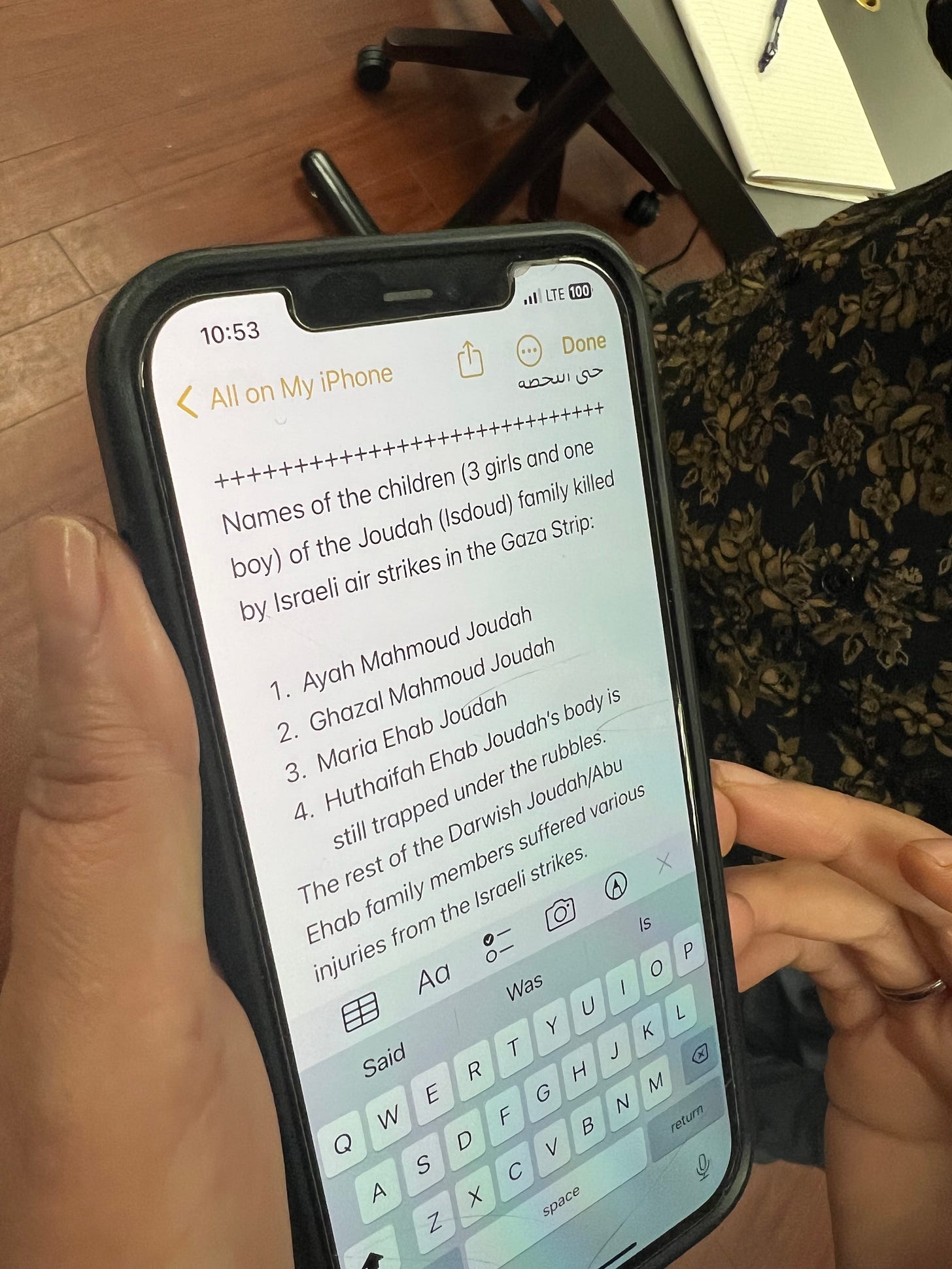Violence in Gaza hits home for Metro Atlanta resident.
“I sift through messages to see what neighborhood is being bombed.”
Because of the rain and I-85 morning traffic, it took Ghada Elnajjar two hours to drive from her home in Alpharetta to the Georgia State Capitol building on Thursday. Elnajjar, who is Palestinian-American, had been awake until 2 am the night before. She had been messaging family in Gaza, trying to find out who was dead, and who was alive. Even though she was operating on little sleep, she drove to the Capitol, determined to put faces and names to the mounting death tolls in the region.
“When there are bombs in Gaza throughout, they are bombing my family throughout,” she told a handful of journalists gathered for a press conference hosted by the Georgia chapter of the Council on American–Islamic Relations.

Five members of Elnajjar’s extended family in Gaza were killed when their house was bombed by Israeli air strikes, she said. The strikes on Gaza are in response to Hamas’ attacks on civilians in Israel. On Monday, Israel imposed a blockade, cutting off food, water and electricity from entering the Gaza Strip. [For more on the history of the conflict, read here.]
The violence has left more than 2,500 people dead in the region in less than one week.
Four of those killed among Elnajjar’s relatives, she said, were children. “Their names are Ayah, Ghazal, Maria, and Huthaifah.” The names are typed up on her phone. The note next to Huthaifah’s name reads, “is still trapped under the rubbles.”
She also had another list of names on her phone that she received from her relatives in Gaza - their neighbors who were killed: 11 members of one family, including a 2-month old baby.
Elnajjar has been receiving updates about the whereabouts and well-being of relatives since last Saturday. Her parents are both originally from Gaza, but had to flee after the 1967 Arab - Israeli war. They moved to Georgia in 1986, by way of Libya and the United Arab Emirates. She still has relatives from both sides of her family living in northern, central, and southern parts of Gaza. She’s been staying in touch with them through two Facebook groups: one for the paternal side of her family, and one for her maternal side. “Usually [the groups] are for sharing happier occasions like graduations and grade point averages.”
But not this week. “They’re updating us on the bombings.”
Elnajjar, an operations director at a financial firm in Alpharetta, has been living in the Atlanta area for the past 16 years. She hasn’t been able to focus on work all week, or on her day to day life in the same way. “It’s been so bad. Friends are realizing I’m absent from activities, absent from socializing with them.”
Between the family Facebook groups, and WhatsApp and Facebook groups for Gazan Americans, she said she’s receiving at least 1,000 messages a day. “I sift through the messages to see what neighborhood is being bombed.” She found out one of her aunt’s neighborhoods was being bombed from one of the WhatsApp messages.
“I don't know how to not go through the messages. I’m so consumed by it. Even when I put the phone down, I’m consumed, I’m still thinking about it.”





